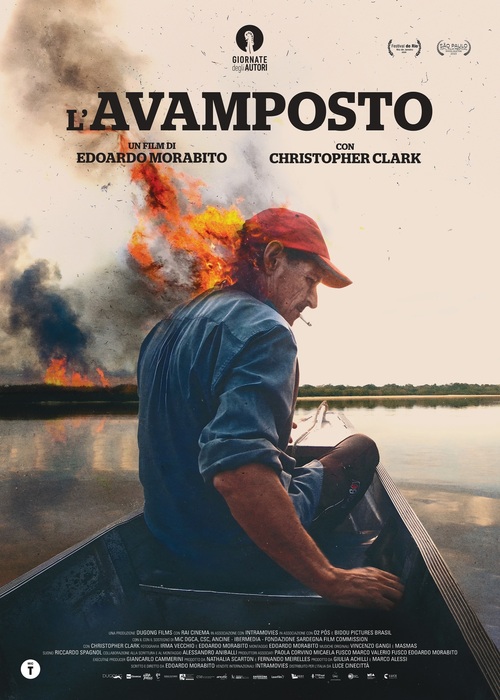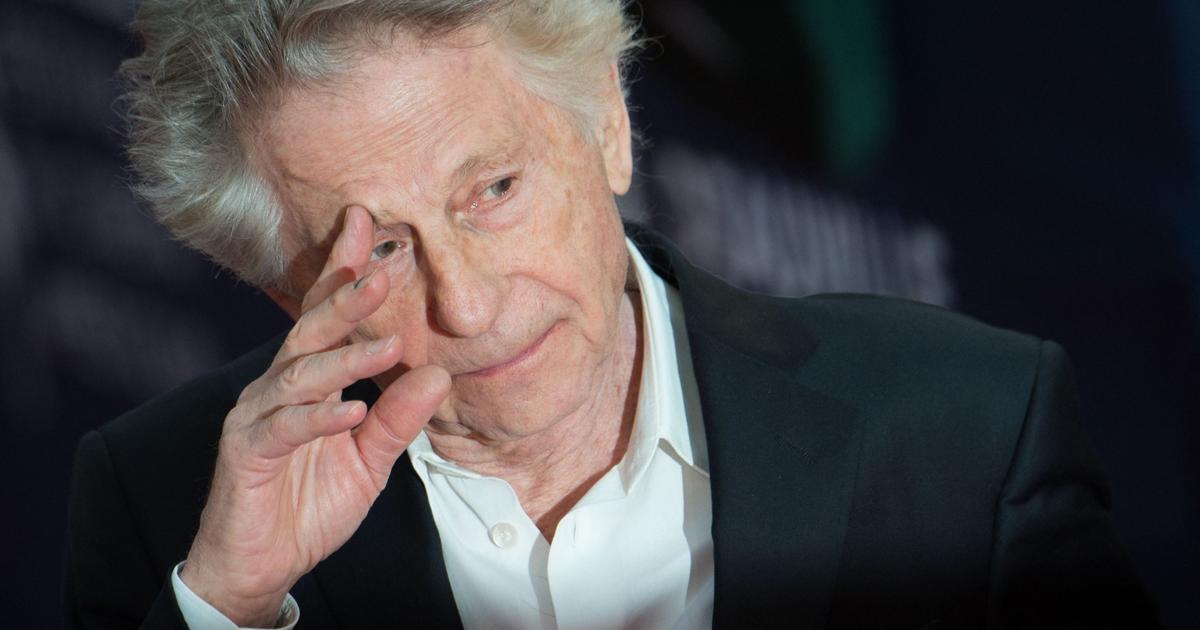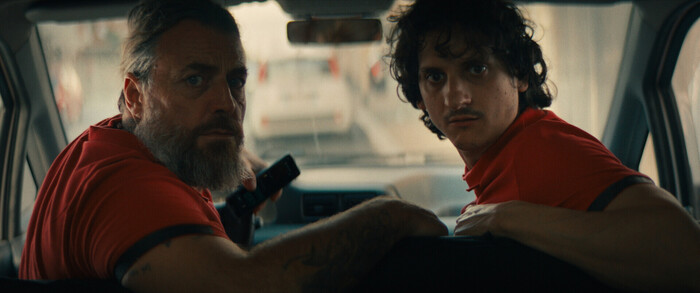All human beings share a certainty: they will die, sooner or later.
They do not know, yes, neither when nor how.
Jack hopes to at least leave before his beloved wife, Babette.
Although she loves him so much that he wants just the opposite.
True love, good.
It seems that the final farewell is the only remote concern of his strange but happy bourgeois family.
Until on the horizon of the protagonists of
White Noise
a more immediate fear arises: a toxic stain in the sky.
Thus, masks appear on the screen, as in the seats.
Because the catastrophe changes, but the feeling is familiar to any viewer.
Just like the themes that run through Noah Baumbach's film, which opened the competition for the 79th Venice Film Festival on Wednesday: misinformation, mass movements, capitalism, alternative medicine or mental health.
It has been received with a relative favorable consensus.
For its merits, for its flaws.
And, perhaps, because those who attend the Mostra are movie buffs, but above all, they are living and fragile people.
Like any.
More information
The magic of the Mostra returns to Venice: the stars walk through the opening ceremony
And more after the last two years.
A deluge bathed the Lido in Venice last night.
This morning the clouds continued, but finally the sun broke through.
Something similar to what the festival itself is trying to do in this edition: to indicate a path towards normality, amidst the fog of the coronavirus.
The face mask in the room has gone from mandatory to “strongly recommended”.
The local press attests that the festivities have returned to their splendor.
And the contest no longer requires covid certificates, nor interpersonal distancing.
On the contrary, it has removed the barriers that separated fans from the red carpet – where, among others, former US Secretary of State Hillary Clinton paraded today.
It is about filling souls, cinemas and showing that the seventh art has survived too many misfortunes to fall to a global pandemic.
The Mostra (which also hosted a video message from Ukrainian President Volodimir Zelenski at its opening gala asking not to turn their backs on his country) knows this better than any other event: it stopped during World War II, it trembled during '68 But here it is.
And it celebrates its 90th birthday, the oldest film festival in the world.
US politician Hillary Clinton arrives at the opening ceremony of the Mostra.MARCO BERTORELLO (AFP)
When it began, in August 1932, Adolf Hitler had months to come to power.
And that time also alludes to this year's opening film (which Netflix will play in a few theaters before releasing it
online ).
late December): Professor Jack, played by Adam Driver, has dedicated his entire life to studying the German dictator.
He himself defines his university course as "advanced Nazism."
He talks about it over and over again with his students, and his fellow students, a group of wise men dedicated to calling each other “brilliant”.
At the same time that he laughs at the academic world, the beginning of the film draws the portrait of a family that is as absurd as it is touching.
Jack, Babette (Greta Gerwig) and their four children.
A home with concerns, emotions, but also with defects.
As one of the daughters in the film says: "The family is the cradle of misinformation."
Here is the Baumbach stamp.
And, actually, from Don DeLillo.
Because for the first time, instead of inventing, the filmmaker adapts the work of another: the
Noise in the Background,
winner of the National Book Award, which the American master published in 1985. And, incidentally, Baumbach dares to move away a little from the comfort zone of his previous films, focused on the very everyday dynamics of an intimate circle and usually inspired by his own memories.
“The language of the novel was familiar to me.
When I read it, it coincided with the start of the pandemic and I couldn't believe how relevant it was to that historical moment and to our lives," the director assured at the film's press conference.
"The film is about how we create rituals and strategies that allow us to stave off the danger of death," he added.
Anyone who has read the book swears that the film version is extraordinarily faithful.
And few will dispute the talent of the author of
Frances Ha
or
Marriage Story
for building believable characters and worlds.
White Noise
is the umpteenth proof that Baumbach knows the camera, narrative rhythm and, above all, humanity.
An example: end of the crisis of the toxic cloud.
Cut.
Full supermarket.
An ellipsis is enough to say that life goes on, the consumerist system forgets and immediately the box starts up.
The jury members of the Venice festival, which is chaired by the actress Julianne Moore and which includes the Spanish director Rodrigo Sorogoyen or the British-Japanese author Kazuo Ishiguro, among others.
MARCO BERTORELLO (AFP)
Not for nothing has the director received applause and recognition for years.
Some compared him to Woody Allen, although it is clear by now that his career has its own distinct identity.
He himself must be aware, because certain dialogues and sequences seem to like him and want to show how much he is capable of raising the level.
If the text comes out of DeLillo, the rapid accumulation of gimmicky exchanges is up to the director.
Despite these burdens, the filmmaker never loses the course of his work.
And that covers many tones, genres and themes.
As one viewer summed up her friend at the end of the screening: “I don't know anything.
I get lost.
And then I understand."
The director was asked precisely about this mixture that drinks from several cinematographic decades.
“Brian de Palma was told: 'You're using Hitchcock techniques.'
And he said, 'No, Hitchcock has made them available to all of us,' he replied.
Surely Lars von Trier is also sometimes inspired by some work of the past.
But it is just as clear that the Danish filmmaker - who is presenting
Exodus in Venice,
the third season, more than 20 years later, of his series
Riget
— has its own style.
The viewing of only one of the five chapters this Wednesday suggests avoiding hasty judgments.
It is convenient, yes, to know the plot of two decades ago to get oriented: an ultramodern hospital has been invaded by supernatural forces and events.
It is likely that they will return blood, strangeness, some provocation and irony, with self-parody included.
So much so that the first applause came after just 20 seconds, when a character insults the original creation.
Even in that the Dane is peculiar: his followers do not need to wait for the end.
They celebrate him from the beginning.
50% off
Subscribe to continue reading
read without limits
Keep reading
I'm already a subscriber















